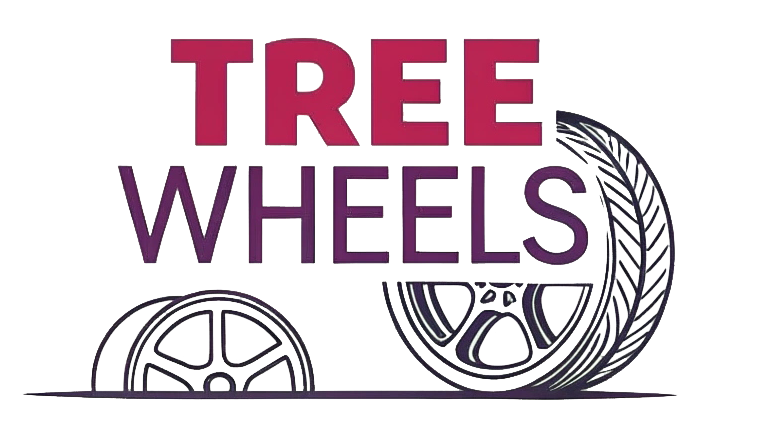The question of whether forged wheels are lighter than alloy wheels is quite misleading. While it's common to think of them as two different categories, the truth is that forged wheels are alloy wheels. The material they’re made from is aluminum alloy. The confusion arises because of the different types of alloy wheels. So, let’s dig into why some alloy wheels are lighter than others, and specifically, why forged wheels are considered lighter.
Yes, forged wheels are generally lighter than cast alloy wheels. Forging improves the structure of the wheel, making it stronger without adding weight, which is why it's often chosen for high-performance cars.

In the world of alloy wheels, there are two main methods of creating them: casting and forging. Casting involves pouring molten metal into a mold, while forging uses pressure to shape the wheel from a solid billet of aluminum. The forging process results in a stronger, lighter wheel. This happens because the metal's grain structure is aligned in the direction of the wheel’s strength, whereas casting doesn’t have this structural alignment, which leads to a heavier product.
Are forged wheels lighter than alloy?
If you’ve ever wondered whether forged wheels weigh less than other types of wheels, you’re not alone. The process used to make these wheels plays a crucial role in their weight.
Forged wheels tend to be lighter than cast alloy wheels. This is because the forging process creates a stronger material, allowing for a thinner, lighter wheel without sacrificing durability.

How Forging Makes a Difference
When it comes to alloy wheels, the type of alloy used and how it’s shaped makes all the difference in terms of weight. Forging allows for a more compact and precise structure. Because of the intense pressure applied during the forging process, the aluminum grain structure becomes aligned in a way that gives the wheel superior strength with less material. As a result, forged wheels are not only lighter but also stronger.
Why Cast Wheels Are Heavier
On the other hand, cast alloy wheels are made by pouring molten metal into a mold. This process is simpler and more cost-effective than forging, but it doesn't produce the same strength or lightness. The structure of the metal in a cast wheel isn't as tight, so more material is needed to achieve the same strength, making the wheel heavier.
What are the disadvantages of forged wheels?
While forged wheels are often seen as the superior option for performance, they do come with some drawbacks. They’re typically more expensive than cast wheels. This price difference can be significant, especially for high-end forged wheels used in motorsport or luxury cars. Additionally, forging is a more complex process, which can lead to longer production times.
The major disadvantage of forged wheels is their cost. The process requires specialized equipment, which increases the price. For many drivers, the price tag may not justify the performance benefits, especially if the car isn't used in high-performance situations.

The Cost Factor
The high cost of forged wheels is the main downside. The advanced manufacturing process requires more labor, higher-quality materials, and more precision, all of which contribute to a higher price. For drivers who aren’t racing or pushing their car to its limits, the cost may not be worth the added strength and performance.
Durability Concerns
Forged wheels are incredibly strong, but they can also be more brittle than cast wheels. In the event of a severe impact (like hitting a large pothole), a forged wheel may crack or break more easily compared to a cast wheel, which may simply bend or get damaged without failing entirely. This risk should be considered depending on your driving conditions.
Which is lighter, alloy cast or forged wheels?
If you're still debating between alloy cast and forged wheels, the answer is clear when it comes to weight. Forged wheels win hands down in terms of lightness. The process of forging gives the aluminum alloy a much stronger and lighter structure, reducing the overall weight of the wheel without compromising its strength.
Forged wheels are lighter than cast alloy wheels because of the manufacturing method. Forging produces a more compact and uniform structure, leading to a wheel that is both lighter and stronger.

Cast Alloy Wheels: Heavier but More Affordable
While forged wheels are undeniably lighter, cast alloy wheels have their own advantages. They are more affordable and easier to produce, making them a popular choice for everyday cars. Cast wheels are a great option for those who don't require the extra performance boost that comes with the lighter, stronger forged wheels.
Comparing the Two in Detail
| Property | Forged Wheels | Cast Alloy Wheels |
|---|---|---|
| Weight | Lighter | Heavier |
| Strength | Stronger, more durable | Weaker, more prone to deformation |
| Cost | Expensive | Affordable |
| Production Time | Longer production time | Faster production |
| Performance | High-performance, ideal for racing | Suitable for everyday driving |
Conclusion
In summary, forged wheels are indeed lighter than cast alloy wheels due to the manufacturing process, making them a better choice for performance vehicles. TreeWheels offers high-quality, custom-forged wheels that are tailored to your specific needs.



